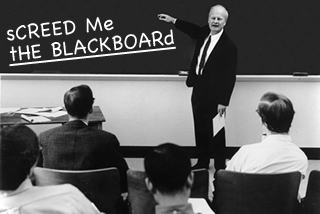
 Thanksgiving
Getting
Thanksgiving
Getting
Here's how the Friday after Thanksgiving this year unfolded for many across the United States:
Stefanie Brooker, 41, slept over at the home of her friend, Michelle Wolfe, 43, according to the New York Times, so the pair could draw up a battle plan the day after Thanksgiving for hitting Best Buy, Kohl's, Linens 'N Things and Toys "R" Us near Columbus, Ohio. Friday morning, the Times reports that they operated under strict instructions: "Once we get started," Ms. Brooker said, "no one's allowed to eat, drink or go to the bathroom until we are done."
At the Lewis Center in Columbus, Cindy Milsap, 43, and her daughter, Ashley, 20, woke up before dawn to drive to the Wal-Mart Supercenter, which advertised a 52-inch high-definition television for $474. "We don't really need a new TV, Ms. Milsap told the Times. "But at that price? C'mon."
At the Wal-Mart outside Columbus, the Times goes on to report that customers dashing toward 5 a.m. deals pinned employees against stacks of merchandise. "Oh, my god, stop pushing me, oh, my god," screamed Linda Tuttle, a 47-year-old store employee.
Is Columbus especially greedy? No. In Utah shortly after midnight Thanksgiving Day, an estimated 15,000 shoppers shoved their way into the Fashion Place mall in the town of Murray according to the Times. Inside, shoppers ransacked the stores, overturning piles of clothes looking for bargains. Police responded to reports of nine skirmishes.
And here in New York, at 6 AM Friday morning in Times Square, a line of several hundred shoppers burst through the doors of Toys "R" Us to buy the $40 T.M.X. Elmo (Tickle Me Elmo Version).
After reports of pushing, shouting, and grabbing, Elmo sold out and the frustrated crowd fanned out to search for substitutes. "Complete madness," 16-year-old, Ray Robinson told the Times. He had snatched one of the last Elmos.
Nothing here is new. Each year you can count on stories like these about the day after Thanksgiving, lately re-named "Black and Blue Friday." Is this perennial just about mall mobbing shoppers?
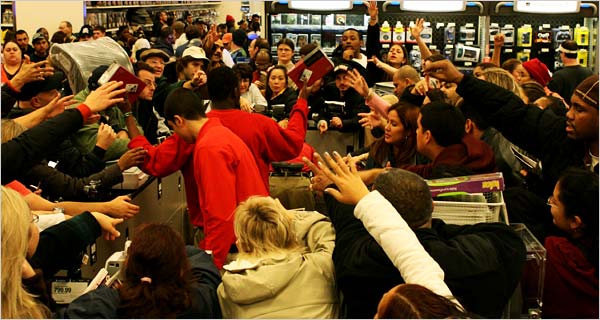 The late Atlantic Monthly editor Michael Kelly wrote that you
could compare our values before and after WWII by comparing the
public personas of Humphrey Bogart and Frank Sinatra. Bogart gave
up the girl he loves for the good of the war effort in Casablanca. "The
problems of two little people don't amount to a hill of beans
in this crazy world." But Sinatra glorified self-promotion, eventually
toasting his bare-knuckle tactics in signature lyrics, "I did
it my way."
The late Atlantic Monthly editor Michael Kelly wrote that you
could compare our values before and after WWII by comparing the
public personas of Humphrey Bogart and Frank Sinatra. Bogart gave
up the girl he loves for the good of the war effort in Casablanca. "The
problems of two little people don't amount to a hill of beans
in this crazy world." But Sinatra glorified self-promotion, eventually
toasting his bare-knuckle tactics in signature lyrics, "I did
it my way."
Extending Kelly's analysis to 2006, who symbolizes our values today, more than 60 years after the relative peace and the prosperity we've enjoyed since history's watershed war?
Names like Donald Trump, Ann Coulter, and Tom Cruise come to mind. Whatever their private virtues they're public buffoons. Ridiculous mountebanks gaming the marketplace with a motto that appears to be, "I sell therefore I am." Empty blowhards who sell well. Which brings us back to us. After all, they sell only what we buy. Doesn't that make them our fault?
Previous generations designed the U.S. Constitution, developed macroeconomics, defeated Nazis, and landed on the Moon. We're not without our own accomplishments: the Internet and cell phones not to mention Viagra and Propecia. But behind those great strides is the greater one - we have made ourselves into consumer kings. And the United States in particular has crowned itself the king of the kings.
True, beneath the headlines about the Robo shoppers, very few of us gathered in mobs at dawn on Friday. Even fewer slugged it out for Elmo. Instead most of us slept, went to work, or tried for an early jump on holiday traffic. Still, as a society the numbers show we buy as much as we can anyway we can anywhere we can from anyone we can. Child labor is bad, but losing out on a deal is worse.
Last year the U.S. produced more than $12 trillion dollars in goods and services - the world's greatest producer. It also spent more than $829 billion abroad last year - the world's greatest debtor. Buying SUVs, packing flat screens into their SUVs, or gassing their SUVs, those mall militants in Ohio, Utah, New York and elsewhere gobbled up most of what the U.S. produced then turned to gobble up $829 billion more.
The United States has grown into the world's ultimate mall rat. Why? Is it because like many teenagers we can't think of anything better to do with all the spare time we complain we don't have?
Here's what seems clear. We buy because we can. If that means ringing up debt we can't pay off, we buy. If that means punching the guy next to us, we buy. Buy It - the 21 st century U.S. clarion call. That's what many of us gave thanks for Friday after stuffing ourselves the day before.
Family Feud or Fabrication?
(reprinted from Spiked-Online.com 28 October
2005)
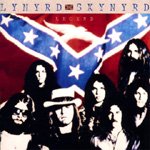 To quote the great Lynyard Skynyard, “Now Watergate does
not bother me. Does your conscience bother you? Tell the truth.”
To quote the great Lynyard Skynyard, “Now Watergate does
not bother me. Does your conscience bother you? Tell the truth.”
Beyond
defending the South, Sweet Home Alabama called out to Americans
who thought the Neil Young crowd was running them down. In the
70s you could have used Lynyard Skynyard vs. Neil Young to identify
sides of the philosophical fault line that run through the history
of the United States. Today we call it Red vs. Blue.
The issues change but the fault line remains. Superseding organized politics, the differences are primarily over how best to live. About half the eligible population vote, but everybody has an opinion. Should marriage be restricted to a man and woman? Is religion nonsense or salvation? Should Washington spend your money to help the needy?
The U.S. political party system is only a subset of these expressions, but alert to using lifestyle cleavages to win elections. When the party system does attach to these disputes we see legislative fights over issues like gay marriage, school prayer, and who should pay to rebuild New Orleans.
The Bush administration owes its re-election in part to successfully integrating lifestyle issues like religion into its 2004 platform. White House strategist Karl Rove connected with Christian conservatives. He didn't invent them though. Nor will they vanish when he's gone. And here’s the central point. Politicians play their part, sometimes exaggerating social cleavages, but these differences trace back to the country’s inception.
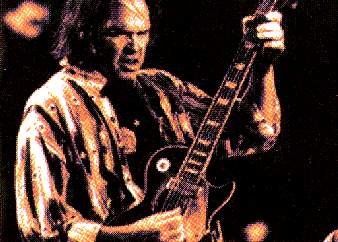 This fault line is never straight. It meanders, vanishes at times
- as in the near unity of purpose following Pearl Harbour - moves
in and out of the political system, sometimes contradicts itself,
but never dies. Instead it’s like a long running family
feud.
This fault line is never straight. It meanders, vanishes at times
- as in the near unity of purpose following Pearl Harbour - moves
in and out of the political system, sometimes contradicts itself,
but never dies. Instead it’s like a long running family
feud.
It all started with the division between Jeffersonian and Federalist founders over the role of national government - should it be a confederacy of sovereign states or a federation with strong central authority.
The dispute was acrid. Antifederalists accused the likes of Johns Adams and Alexander Hamilton of near sedition – traitors to the "Spirit of '76" and its Declaration of Independence.
The 1787-88 constitutional convention in Philadelphia gave the federalists their strong central government but could not mend the philosophical differences that fractured the founders over the question of central authority. Seven decades later these differences became the Civil War, a clash in part over the most notorious of the irreconcilable differences - slavery.
In the next century, the slavery argument became the segregation argument. In the 1960s segregation defenders still vowed to protect “states’ rights” – a central cause of the war that had ended 100 years earlier, and before that the cause making bitter enemies of fast friends like Adams and Jefferson.
Today’s watered down segregation debate is one over affirmative action. And you can further connect the U.S. dots of division over issues through history like routing out domestic communists in the 40s and 50s, war with Vietnam and Watergate in the 60s and 70s. Today war in Iraq fractures the country. Is it an invasion or a defense? These disputes are the result of philosophical differences, not the reason. They express a fundamental rift over how to define the nation.
Conservative national talk-show host Sean Hannity described public reactions during a recent 13-city tour. “People either loved me or hated me.” The dichotomy of views is not always so dramatic but it is rarely absent. Hannity concludes, “We see life differently.”
If so, consider this – could individuals defining themselves as Red or Blue today trace their lineage back through these dots of division? Would most in each group pick common sides through history?
The fault line follows no consistent political party path and often expresses itself outside the party system altogether. When Rosa Parks sat down in the front of a Montgomery Alabama city bus in 1955 she fought a local segregation battle nearly a decade before national politicians had picked sides.
In the fine Lynyard Skynyard v. Neil Young tradition, entertainers today often square off outside the party system. In movies it’s Michael Moore v. Mel Gibson. In comedy it’s John Stewart vs. Dennis Miller. Far beyond party politics, these entertainers play to the historic feud that again cuts more along lifestyle lines.
And they’re not alone. Political and media strategists work hard to sell their lifestyles. That’s why NBC News anchor Brian Williams routinely points out that he was a college dropout and one time firefighter who now loves stock-car racing. That’s why President Bush walks the way he does and chooses summer holidays in a dusty Texas town where temperatures frequently exceed 100f.
Williams and Bush calibrate their images to sell to a lifestyle by imitating it, or appearing to. Consider these latest U.S. Census Bureau findings indicating a contrasting pattern in Red and Blue lifestyles.
♣ Unmarried couples made up more than 7% of households
in northeastern Blue states like Maine, New Hampshire, and Vermont.
That’s about double the rate of unmarried couples living
in Red states like Alabama, Arkansas, and Mississippi.
♣ In Blue New York, New Jersey, and Massachusetts about 5%
of babies are born to teenage mothers. More than twice that many
babies are born to teen mothers in Red states like Georgia and Louisiana,
Texas and Wyoming.
♣ Couples in Blue California and Connecticut typically marry
four years later in life than couples in Red Idaho and Oklahoma.
Differences over how to live and the policy battles that result don’t always follow regional lines. A more realistic map of the political divide shows more purple than one Red or Blue. Also, the battle often changes economic lanes. George Bush beat John Kerry among middle-income voters for example, earning $30,000 to $75,000 a year – a crowd that once voted Democrat.
Still, there’s a reason why people visiting each other from places like Seattle and Kansas City feel like they’ve each landed on Mars. They have. That’s the divide. It’s not restricted to the voting booth. It’s as old as the country.
Who's On First for the Next Generation!
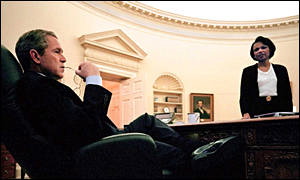
George: Condi! Nice to see you. What's happening?
Condi: Sir, I have the report here about the new leader of China.
George: Great. Lay it on me.
Condi: Hu is the new leader of China.
George: That's what I want to know.
Condi: That's what I'm telling you.
George: That's what I'm asking you. Who is the new leader of China?
Condi: Yes.
George: I mean the fellow's name.
Condi: Hu.
George: The guy in China.
Condi: Hu.
George: The new leader of China.
Condi: Hu.
George: The main man in China!
Condi: Hu is leading China.
George: Now whaddya' asking me for?
Condi: I'm telling you, Hu is leading China.
George: Well, I'm asking you. Who is leading China?
Condi: That's the man's name.
George: That's who's name?
Condi: Yes.
George: Will you, or will you not, tell me the name of the new leader of China?
Condi: Yes, sir.
George: Yassir? Yassir Arafat is in China? I thought he's dead in the Middle East.
Condi: That's correct.
George: Then who is in China?
Condi: Yes, sir.
George: Yassir is in China?
Condi: No, sir.
George: Then who is?
Condi: Yes, sir.
George: Yassir?
Condi: No, sir.
George: Look Condi. I need to know the name of the new leader of China. Get me the Secretary General of the U.N. on the phone.
Condi: Kofi?
George: No, thanks.
Condi: You want Kofi?
George: No.
Condi: You don't want Kofi.
George: No. But now that you mention it, I could use a glass of milk. And then get me the U.N.
Condi: Yes, sir.
George: Not Yassir! The guy at the U.N.
Condi: Kofi?
George: Milk! Will you please make the call?
Condi: And call who?
George: Who is the guy at the U.N?
Condi: Hu is the guy in China.
George: Will you stay out of China?!
Condi: Yes, sir.
George: And stay out of the Middle East! Just get me the guy at the U.N.
Condi: Kofi.
George: All right! With cream and two sugars. Now get on the phone .
